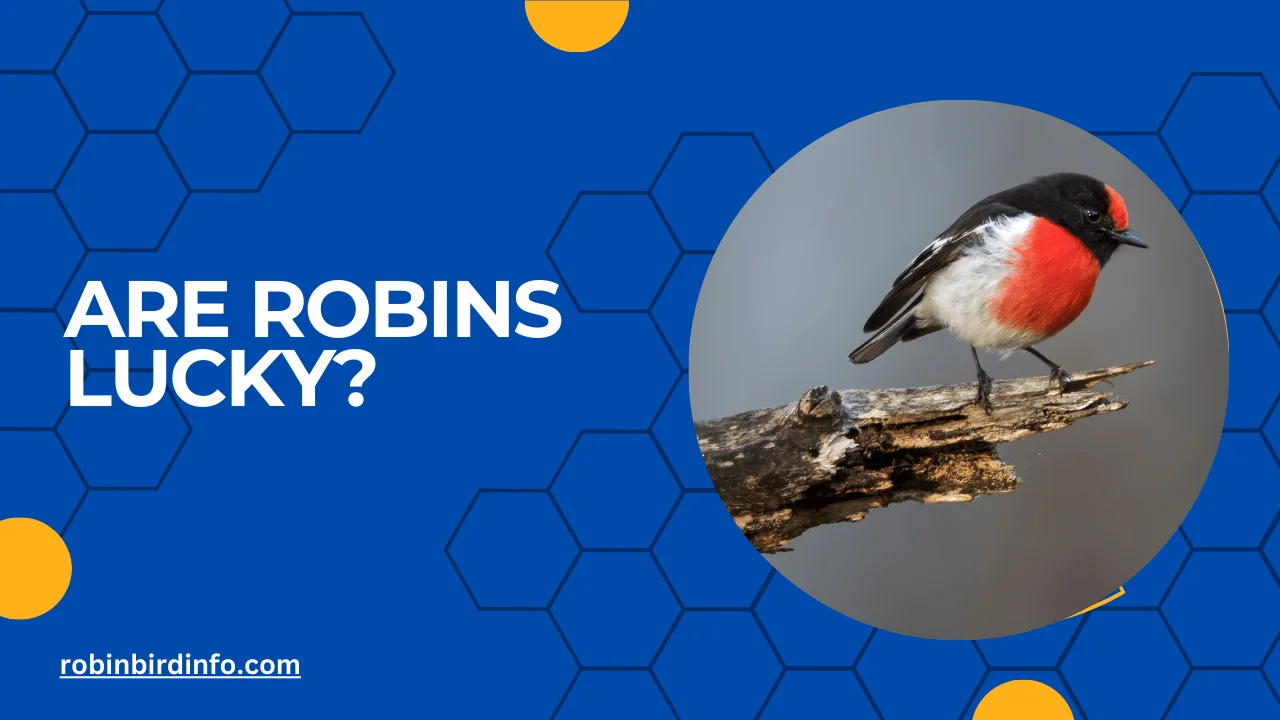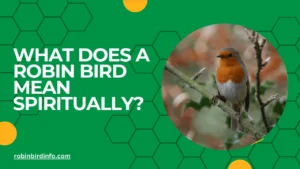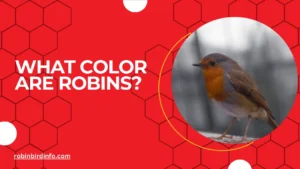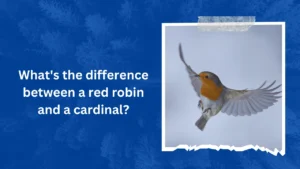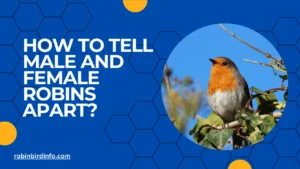Have you ever spotted a Robin perched on your windowsill, its bright red breast catching the morning light?
These cheerful songbirds are a familiar sight for many, often associated with spring and new beginnings. But beyond their charming melodies and vibrant plumage, Robins hold a unique place in folklore – they’re considered symbols of good luck in many cultures.
But does a Robin sighting actually bring you a lucky streak, or is there more to the story? This curious connection goes deeper than mere happenstance. In this blog post, we’ll delve into the fascinating world of Robin symbolism, exploring the cultural myths and traditions that have shaped this belief.
We’ll also explore the Robin’s role in the ecosystem and the surprising ways they contribute to our well-being. So, grab a cup of tea, settle in, and prepare to discover whether a Robin’s presence is truly a harbinger of good fortune, or something even more profound.
Contents
Cultural Symbolism of Robins
Folklore and Mythology: Across various cultures, Robins have been imbued with symbolic meaning. In European folklore, they are often associated with good luck and prosperity. Their arrival in the spring is seen as a harbinger of warmer weather and new beginnings.
Symbolism of Color: The red breast of the Robin has also been interpreted symbolically. Red is often associated with passion, vitality, and good fortune. In some cultures, the red breast is seen as a symbol of the heart, representing love, compassion, and courage.
Cultural Interpretations: Different cultures have their own unique interpretations of Robins. In some cultures, they are believed to bring good luck to homes and businesses. In others, they are seen as messengers of hope and renewal.
Section 2: Ecological Role of Robins
Seed Dispersal: Robins play a vital role in seed dispersal. They consume fruits and berries, and then disperse the seeds in their droppings. This helps to spread plant species and contribute to biodiversity.
Insect Control: Robins are important predators of insects, particularly during the breeding season when they need to feed their young. By consuming insects, Robins help to control pest populations and maintain ecological balance.
Ecosystem Services: Robins provide a range of ecosystem services, including pollination and nutrient cycling. They contribute to the health and vitality of ecosystems by helping to maintain biodiversity and ecological balance.
Section 3: The Psychological Impact of Birdwatching
Stress Reduction: Birdwatching has been shown to have numerous psychological benefits, including stress reduction and improved mood. Observing birds, such as Robins, can help to calm the mind and reduce anxiety.
Connection to Nature: Spending time in nature, including birdwatching, can foster a deeper connection with the natural world. This connection can promote feelings of well-being, gratitude, and awe.
The Joy of Birdwatching: The simple act of observing birds can bring joy and wonder. The beauty and complexity of bird behavior, including the songs and behaviors of Robins, can inspire a sense of awe and appreciation for the natural world.
Section 4: The Role of Superstition and Belief
Superstitions and Good Luck Charms: Many superstitions and beliefs are associated with Robins. For example, seeing a Robin in the spring is often considered a sign of good luck. Some people believe that if a Robin builds a nest near your home, it will bring good fortune.
The Power of Positive Thinking: The belief in the luck associated with Robins can have a positive psychological impact. Positive thinking can lead to improved mood, increased optimism, and a greater sense of well-being.
The Importance of Critical Thinking: While it’s fun to embrace superstitions and folklore, it’s important to maintain a critical perspective. It’s essential to distinguish between fact and fiction and to base our beliefs on evidence and reason.
Section 5: Protecting Robins and Their Habitats
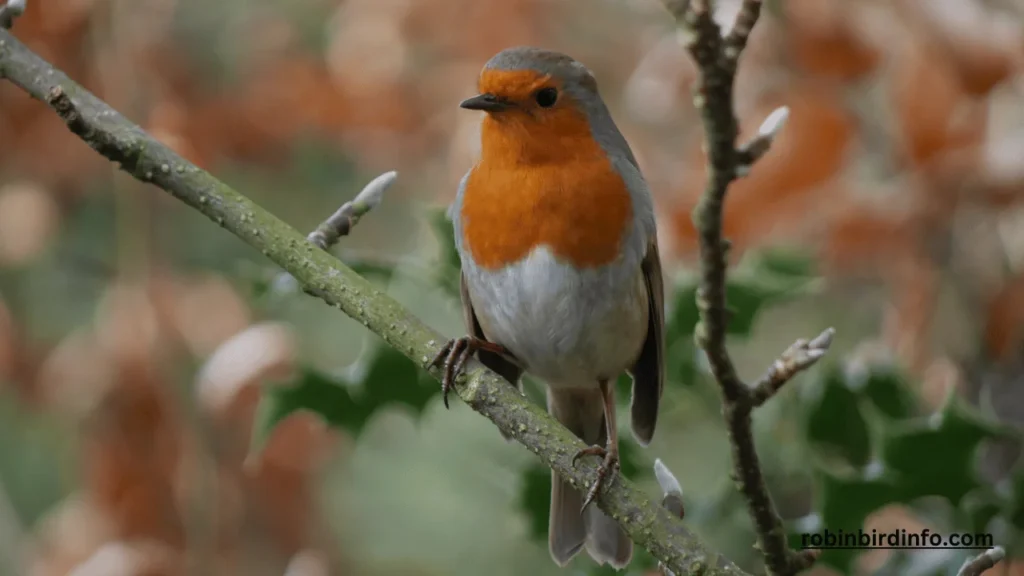
Threats to Robin Populations: Robins face various threats, including habitat loss, climate change, and pesticide use. These factors can impact their breeding success, migration patterns, and overall survival.
Conservation Efforts: To protect Robin populations, it’s important to conserve their habitats, reduce pesticide use, and promote sustainable practices. By creating bird-friendly environments and supporting conservation organizations, we can help ensure the future of these beloved birds.
Individual Actions: Individuals can contribute to Robin conservation by planting native plants, providing clean water sources, and avoiding the use of harmful pesticides. By making small changes in our daily lives, we can help protect these fascinating creatures and their habitats.
Conclusion
Robins have captured the hearts and imaginations of people for centuries.
Their vibrant plumage, cheerful songs, and association with good luck have made them beloved symbols of spring and renewal. By understanding their ecological role, cultural significance, and the threats they face, we can appreciate these birds even more and take steps to protect them.
By promoting bird-friendly practices and supporting conservation efforts, we can ensure that future generations will continue to enjoy the beauty and wonder of Robins. Sources and related content
FAQ’s
Are Robins really lucky?
While Robins are often associated with good luck, there’s no scientific evidence to support this belief. The association likely stems from their cheerful appearance and association with spring, a time of renewal and hope.
Why are Robins considered a symbol of good luck?
Robins are often seen as symbols of good luck due to their association with spring and new beginnings. Their bright red breast is also seen as a symbol of passion, vitality, and good fortune.
Do Robins bring good luck to your home?
While there’s no scientific evidence to support this belief, many people believe that having a Robin build a nest near their home is a sign of good luck. However, it’s important to remember that Robins may choose to nest near your home simply because it provides suitable nesting conditions.
What are some common superstitions about Robins?
Some common superstitions associated with Robins include the belief that seeing a Robin in the spring is a sign of good luck, or that if a Robin builds a nest near your home, it will bring prosperity.
Do Robins have any special significance in different cultures?
Robins have different cultural significance in various cultures. In some cultures, they are associated with death and mourning, while in others, they are seen as symbols of hope and renewal.
How can I attract Robins to my garden?
To attract Robins to your garden, you can provide food sources like birdseed and mealworms, offer clean water sources, and plant native plants that provide berries and insects.

